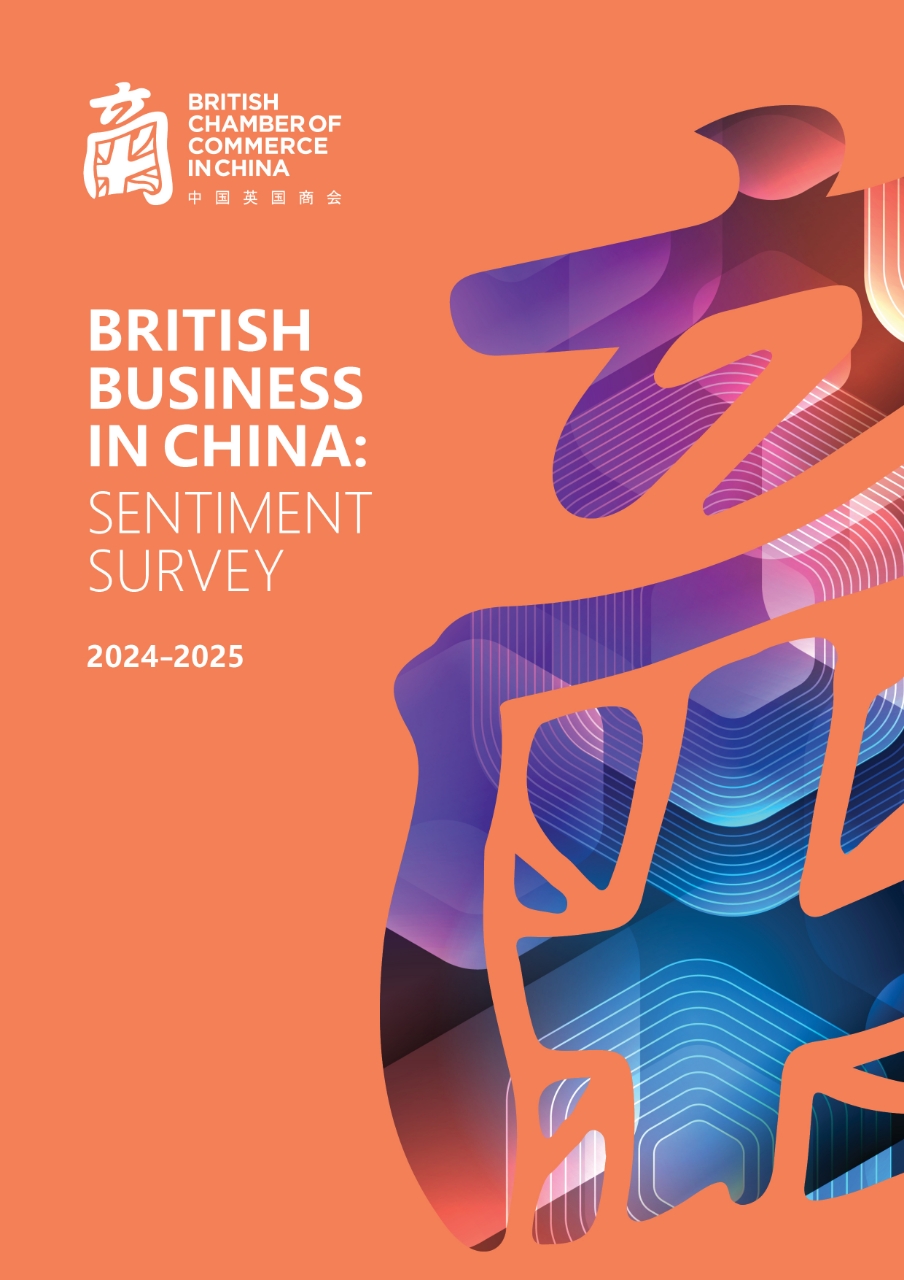The 2025 British-Canadian Christmas Dinner Concludes Successfully The 2025 British-Canadian Christmas Dinner, co-hosted by the…
Restarting UK engagement with a different China: Sentiment Survey 2024-25
The British Chambers of Commerce in China have published the 2024-25 Sentiment Survey, which reflects the perspectives of over 300 British businesses operating in China at a pivotal moment. As the UK seeks to redefine its relationship with China, and China implements new measures to revitalise its economy, the survey sheds light on the challenges and opportunities for British companies.
“The era of boundless optimism, and investment simply because of ‘market potential’, is over,” said Julian Fisher, Chair of the British Chamber of Commerce in China. “British businesses, evidenced by the data in this year’s survey, have entered a new phase in their engagement with China: pragmatism.”
This year’s key survey findings paint a mixed picture for British businesses – challenges in many areas, but opportunities at key nexus points in the British and Chinese economies:
- The business environment has become tougher for five consecutive years: 58% of British businesses report that operating in China was more difficult this year than last year; only 41% of businesses are optimistic about their prospects in 2025.
- Investment is stabilising: 76% of companies are maintaining or increasing their investment, with only 8% reducing (the lowest figure since 2021).
- Renewed UK-China dialogue restores confidence: Optimism in bilateral relations rose sharply following UK Foreign Secretary David Lammy’s visit in October, with a record 35% expressing positivity about the relationship.
- Opportunities in global connectivity and strategic sectors: British companies are leveraging China’s economic shifts, with a quarter of MNCs seeing growth in using operations in China to access markets outside of the country. 61% of British services firms see growth in supporting Chinese companies going global.
Persistent challenges in a changing landscape
British businesses continue to face significant headwinds, from China’s economic slowdown to regulatory hurdles. Revenue expectations are down, and businesses’ optimism for 2025 is low despite the announcement of stimulus measures. However, Chinese government language has been changing since the opening of the survey on 23 September.
Renewed UK-China engagement inspires hope
The Labour government’s pragmatic approach, including re-engaging through the Economic and Financial Dialogue (EFD) and Joint Economic and Trade Committee (JETCO), has been well-received by business. Following recent high-level meetings between UK and Chinese leaders, businesses are hopeful for sustained dialogue to resolve market access issues and foster collaboration across multiple business sectors.
China’s evolving global strategy creates opportunities for British businesses
Strategic initiatives like the Belt and Road Initiative and expanded freight links are opening new markets. British companies are using China as a regional base, while professional services firms are capitalising on China’s global ambitions by supporting its companies’ international expansion. This is particularly the case in many sectors outlined by the UK government as growth sectors.
“Financial services, energy, business advisory, and creative services are just some of the key UK subsectors seeing growth in supporting Chinese companies going global,” said Fisher in the Survey’s foreword.
The British Chambers of Commerce in China call for:
- Structured engagement in 2025 and beyond: Leverage dialogue mechanisms like the EFD and JETCO to provide consistent support for business priorities and facilitate increased trade in the years ahead.
- Restarting the UK-China High Level People-to-People Dialogue: Reintroduce this vital mechanism to foster long-term understanding, build trust, and strengthen collaboration between the UK and China.
- Alignment of UK and Chinese growth strategies, where safe to do so: Identify shared priorities to foster collaboration in areas such as clean energy, standard setting and qualification recognition, whilst carefully managing associated risks.




